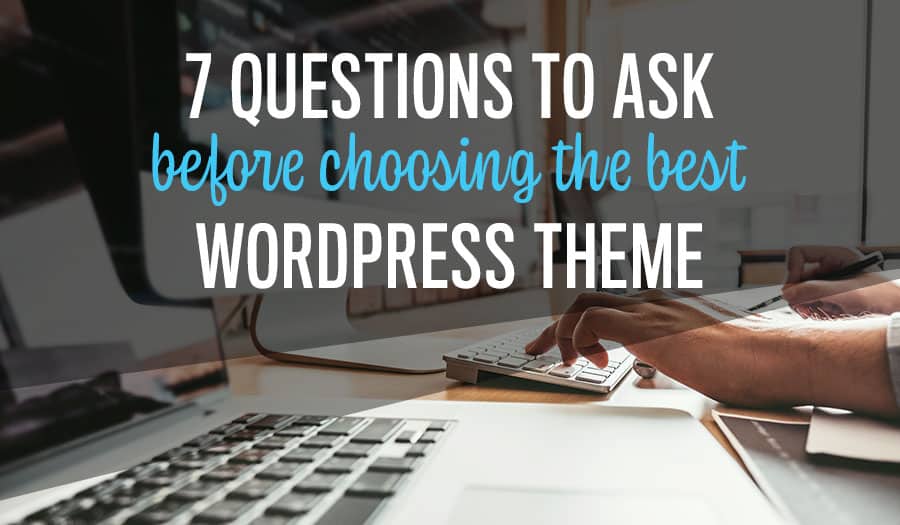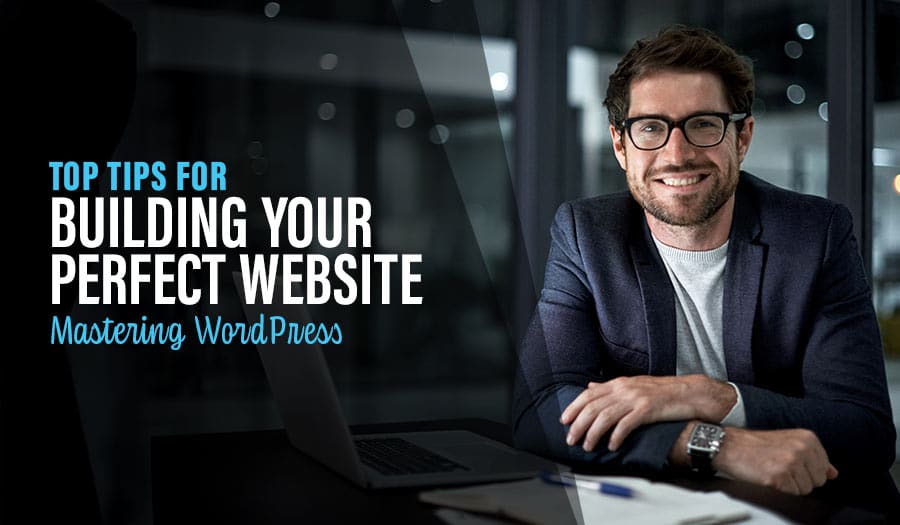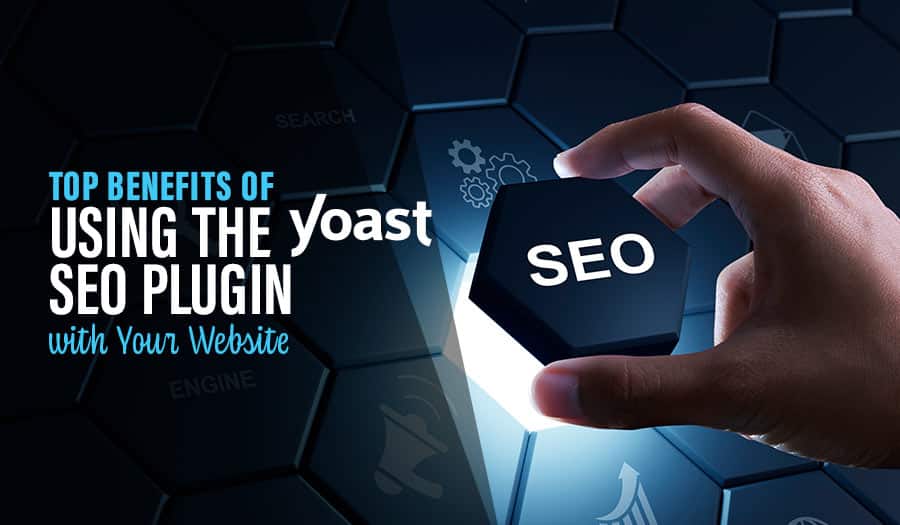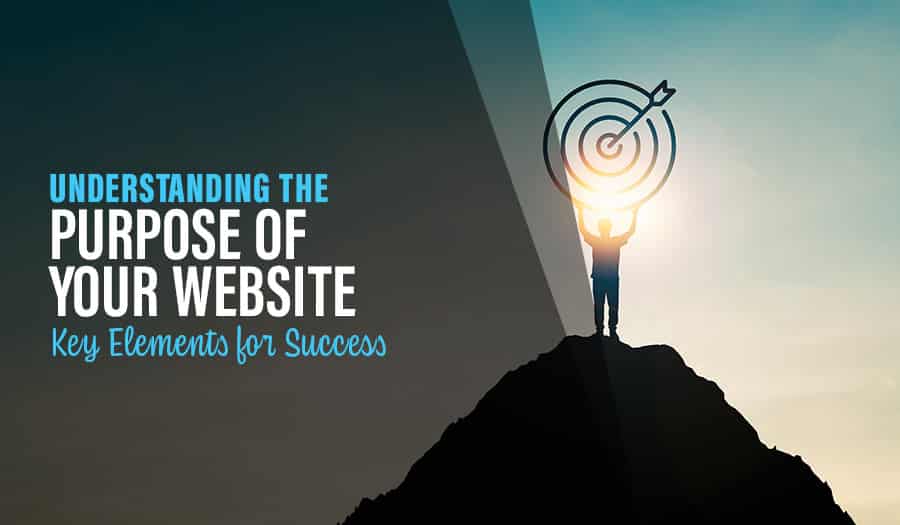What’s on the inside counts, too. WordPress has become the world’s most popular content management system partly because of the many themes available for every type of business and subject. And yet, even as you decide that moving your online presence to the platform is a good choice, it’s easy to get stymied by the agony of choices available to you. Let’s explore the 7 Key Questions to ask before Choosing the Best WordPress Theme.
According to some estimates, more than 10,000 themes exist on WordPress. The platform is open-source, so anyone with a design background can build their own website template and offer it either for free or for a price. But how can you choose from these options to find the WordPress theme your business needs?
The answer is more complex than you might think. Yes, looks matter. But the interior ‘structure’ of the theme you choose is just as, if not even more important for the long-term success of your website. In addition, you might actually benefit from professional WordPress development instead. So if you’re looking for answers on how to choose a WordPress theme, consider answering these 7 questions.
7 Key Questions to ask before Choosing the Best WordPress Theme
- What Does My Website Need to Accomplish?
- What Visual Style Works Best For My Goals?
- What Pricing Makes Most Sense For My Website Project?
- What Support Can I Expect After Installing the Theme?
- Is the Theme I Choose Responsive to Mobile Screens?
- What Plug-ins Are Compatible With This WordPress Theme?
- Is Custom Development an Option For Me?
1. What Does My Website Need to Accomplish?
Always start with the goals. No matter which direction you go in, you have to make sure that it is consistent with the objectives your website ultimately needs to accomplish. And, of course, your website objectives have to align with your personal and business goals.
Are you simply looking to build an online portfolio of your work, or do you want to build a complex online store with multiple product lines? What audiences are you looking to attract, and what actions do you want them to take to benefit your business?
All of these questions aim to accomplish the same thing. They help you narrow down the list of available options to a select few that match your needs. Ask yourself this question, as it will inform all of the follow-ups below.
2. What Visual Style Works Best For My Goals?
Looks are not the only variable you should consider in choosing a WordPress theme, but that doesn’t mean they’re irrelevant. Put simply, you need to find a visual style that actually helps you accomplish the goals defined in step one above.
Much of this style will likely depend on your audience. A company looking to attract business customers may look for simple, streamlined design options without much visual fluff. On the other hand, a nonprofit looking to raise funds for a good cause will need plenty of opportunities to tell its story in a visual fashion.
Of course, exceptions exist on both sides. The better you define your business goals and your audience, the more likely you will be to find a visual style that makes sense for both–helping you identify exactly what kind of template and theme you should be looking for.
2. What Pricing Makes Most Sense For My Website Project?
Naturally, you cannot overextend yourself. Select an acceptable budget range for your project before you begin to evaluate themes, as their prices can vary wildly. While some are available for free, you might have to pay hundreds of dollars for more advanced opportunities.
Don’t forget to add in potential installation and build costs. A theme offers the baseline for your online presence but might need to be customised to ensure it actually serves your needs. Include working with a professional WordPress design company in your initial budget evaluation.
When it comes to WordPress, cheaper is not always better. Quite the opposite, in fact. Many free themes are extremely limited in functionality, which makes them better suited for personal uses than business websites. Look for options that can accomplish your goals over those that seek only to minimise your budget.
4. What Support Can I Expect After Installing the Theme?
Does the theme come with any support on the developer’s side? This support might include regular updates to plug potential security holes and bugs, new extensions and plug-in opportunities and more. If the theme developer does offer this type of support, make sure you know whether or not it will be included in the initial price.
Most themes available on the WordPress marketplace don’t include this type of option. Some that are developed on a more custom level do. Especially for business purposes, a higher level of support is crucial, especially as it relates to data and web security issues.
Again, working with a professional or development company comes into play here. Credible web design and development firms typically offer at least some type of support after the initial build. Do your due diligence before you move too far ahead to make sure that you’re not on your own once the website is live.
5. Is the Theme I Choose Responsive to Mobile Screens?
This is a simple consideration factor. If your theme is not responsive to mobile devices and other small screen sizes, run and choose another option. Close to 60 per cent of all internet users now browse on their smartphones and tablets, and that number will only rise in the future.
Your website needs to account for that fact. A simple mobile website is not enough; instead, the theme you choose should adjust dynamically based on the screen sizes of individual visitors. This type of coding, known as responsive design, will rise even further in importance once Google officially releases its Mobile-First Index.
Some themes simply don’t offer these options. Others are limited to a few static builds based on common sizes. In reality, only a fully responsive theme (and website design) will be beneficial as you look to attract and convert your audience.
6. What Plug-ins Are Compatible With This WordPress Theme?
Many beautiful themes fizzle when they’re implemented because they simply don’t offer the functionality your business website needs to succeed. A major reason for that problem: is the lack of compatibility with relevant plug-ins.
WordPress themes, in many ways, depending on these plug-ins to function. These additions offer anything from lead generation forms to search engine optimisation tools and eCommerce capabilities. But if your theme isn’t compatible with them, you won’t be able to take advantage and achieve your business goals.
At best, incompatible plug-ins slow down the load time. At worst, they simply don’t function or cause your entire site to crash. Avoid that problem by choosing a theme that integrates with the plugins you need. If you’re working with a professional, ensure they can help you integrate the right plug-in or build a custom one for your needs.
7. Is Custom Development an Option For Me?
Finally, don’t underestimate the potential power of foregoing themes altogether. Custom development may be a better choice if you truly want to build an online business tailored to your business needs and goals.
To start, it solves many of the problems mentioned above. You don’t need to worry about compatible plug-ins because the site can be developed specifically to align with your business needs. The code can easily be responsive to mobile devices. Support tends to exist beyond installation, and the visual style will be custom for you.
Custom WordPress development can be more expensive, but the benefits tend to quickly outweigh those costs. Think of it as an investment with the potential to significantly outpace the returns of a free or premium theme. If you have the budget, that initial investment will be well worth it.
Are You Ready for a Reliable WordPress Development Partner?
Ultimately, WordPress helps you build a great website that represents your business and helps to accomplish its core goals. But that doesn’t happen automatically. Whether you go with a theme or custom development, working with a partner to ensure you get the returns you need is always the better choice.
Before you go with any theme that you like, make sure you answer the above 7 questions. That helps you find an option that matches with and helps you accomplish your individual and business needs. The end result might be a template or a custom WordPress template; either way, you can make sure that you get what you need.
The goal of this exercise is to cut through the clutter. You need to make an informed decision that helps you build a better online presence and bring your business forward. That, ultimately, is what WordPress can help you accomplish if you leverage it the right way.
Looking at Choosing the best WordPress Theme?
That’s also where Pixel Fish comes in. Our experience in WordPress allows us to become a reliable partner, helping you either refine your existing online presence or build a custom new website from scratch. We leverage the power of WordPress in a way that maximises the return on your investment and positions your business for success for years to come. Contact us today to start a conversation about what you need and how we can help you accomplish your business goals.
Speak to the WordPress experts and take your business to the next level with a Pixel Fish Website.
Check out some of our latest Website Design projects.
Further Reading
10 Top Reasons to use Gravity Forms
8 Social Media Plugins for Your WordPress Website
Read More
Australia’s E-Commerce Growth: It’s time to Embrace Online Selling
The Top 10 WooCommerce Benefits for Small Businesses
5 Ways E-marketing Can Drive Ecommerce Website Sales
5 Strategies to Fix Checkout Abandonment Rate
Top E-Commerce Web Design Trends
10 Best Practices for a Successful WordPress Website Design Project
Project Management Software Solutions for a Website Project
Check out the Pixel Fish Website Design Blog!



